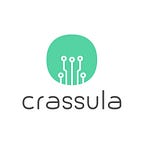Traditionally a closed-off and predominantly vertical sector, banking is undergoing a major transformation, part of which includes opening up and granting access to data, functionality, and customers to external parties. Many banks are heading towards a more open way of operations. We start to see the term Banking-as-a-Service (BaaS) more often.
Banking-as-a-service (BaaS) is an end-to-end process where financial services capabilities can be accessed and executed by third parties without having to organically build them. Think of SaaS (Software-as-a-Service), a more common term to our ears, which is a business model that implies the provision of a full technological solution for your business. Here, you have a full banking solution to your company’s needs. BaaS is at the core of embedded banking, which enables the integration of banking and payment services into companies’ apps and platforms
BaaS implies banks and financial institutions like EMI (electronic money institution) supplying access to their core systems and features to third parties so that digital banking and payment services can be incorporated into the company’s offerings. It involves adopting a more decentralized way of operating from the bank’s point of view and enabling an ecosystem of fintechs and software providers to link to the bank via APIs.
How does it benefit companies? Using Banking-as-a-Service solutions enables businesses to offer a variety of products that significantly enhance the experience of a customer with the bank and the service provider. Organizations that are addressing BaaS are also opening up new revenue streams in addition to getting ahead in open banking. Companies can overcome some major development barriers by leveraging the functionality of a bank and go to the market much faster than if they were to create their own functionality from scratch.
Additionally, benefits for financial institutions themselves are that, by offering BaaS services, banks can meet new customer bases without a substantial cost, which can lead to the start of a fresh, financially valuable, partnership between the bank and the customer.
In order to efficiently cooperate with players in the financial services ecosystem, conventional banking models are being challenged and banks would need to become flexible and platform-based. In order to meet new clients and enhance the end-to-end customer journey, BaaS has emerged as a creative and revenue-driving business model that banks should embrace. BaaS will play an important role in banks’ eventual digital transformation, which will have a lasting effect on the future growth of banks. So, which BaaS platforms can they address?
Digitally-developed banks who now build their own BaaS platforms can not only get ahead of their rivals with the open banking opportunity but also unlock a new revenue stream by monetizing their platforms. Some of the BaaS platforms that can be used by banks are:
Crassula Core Banking solution will help you to get fully branded banking software in less than a week. Crassula White Label Core Banking supports all daily banking products that can be adapted to any business’ needs. It can be used both by established banks and FinTechs. The better part is that this Core Banking solution can be used both if you are looking for Core Banking System or you need to embed FinTech services to your existing product.
Crassula Banking-as-a-Service software offers a complete, ready-to-launch solution with both web and mobile interfaces, administrative panel, APIs and more. It is also designed for Banks, EMIs, APIs, MSBs and other financial institutions to meet all requirements set by regulators. Crassula Core Banking allows you to customize your solution to support your USPs and specific business needs in a function-rich yet simple way with composable Banking products. Additionally, it is one of the most affordable platforms — you can get a While Labeled product for the price of hiring a software developer.
solarisBank
The Berlin-based startup holds a German banking license and offers a BaaS platform that allows companies to give their end customers entirely digital and compliant white-labeled financial services. It calls itself “tech company with a banking license.”
Starling Bank
Starling opened its APIs with its creative BaaS offering to allow banks, fintechs, distributors, and brands to use their banking license to create personalized financial products such as savings or current accounts and debit cards.
Open banking is now seen by many industry executives as an unavoidable and accelerating development in financial services. BaaS will play an important role in banks’ inevitable digital transformation, which will have a lasting effect on the future growth of banks.
More information at https://crassula.io/products/core-banking
Would you like to launch with Crassula? Please fill in the form https://forms.gle/8EJhgYTufrkFbP2M7
